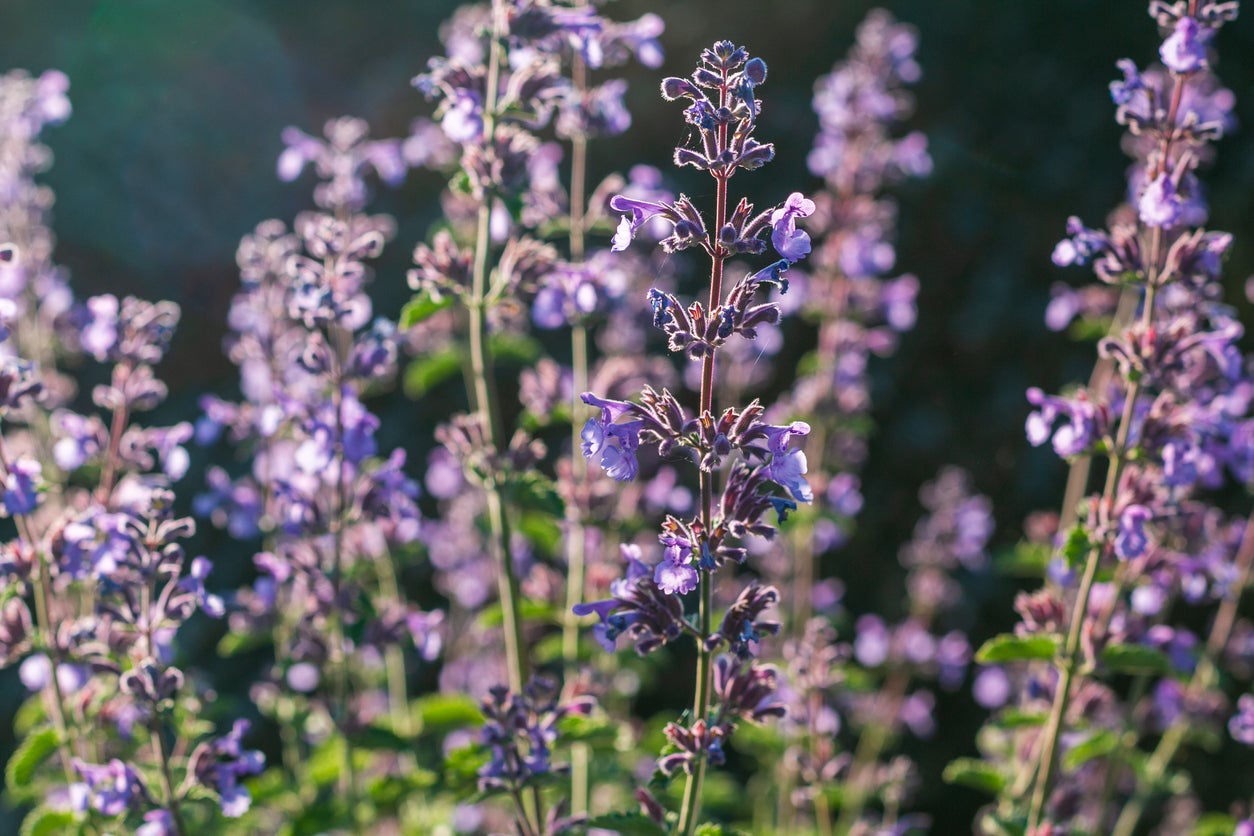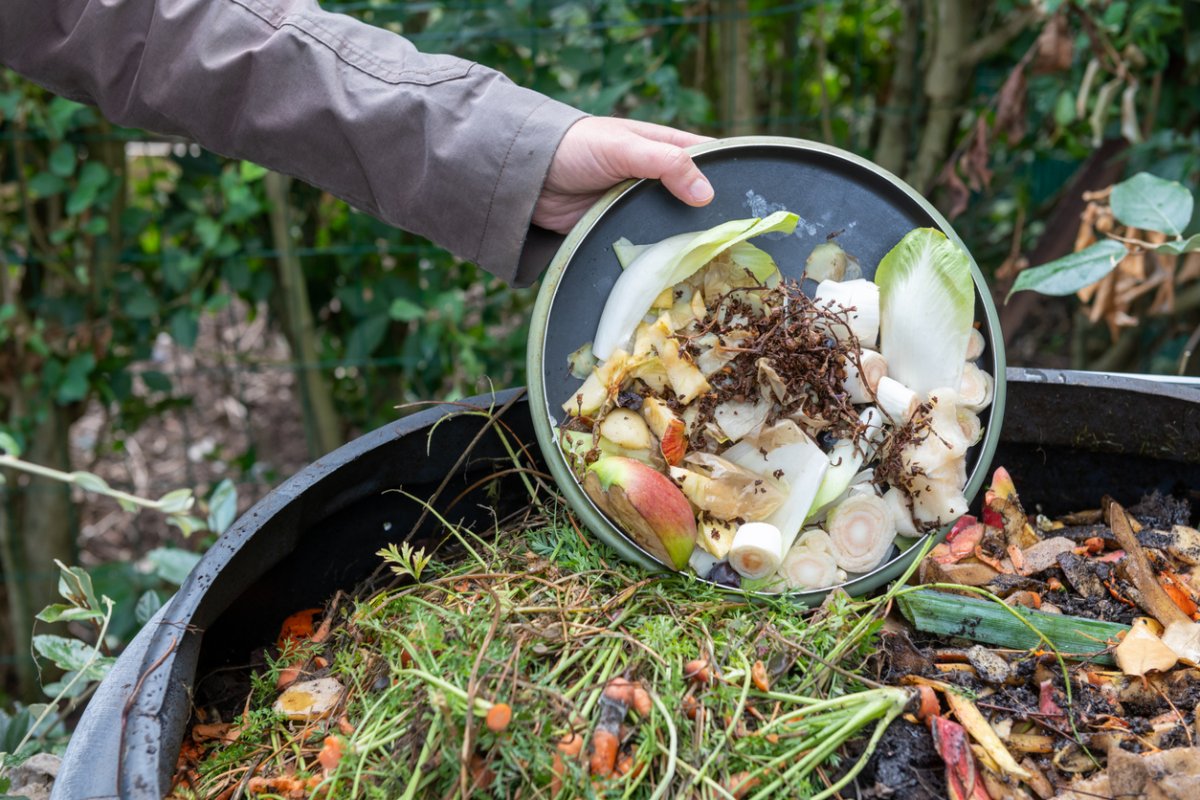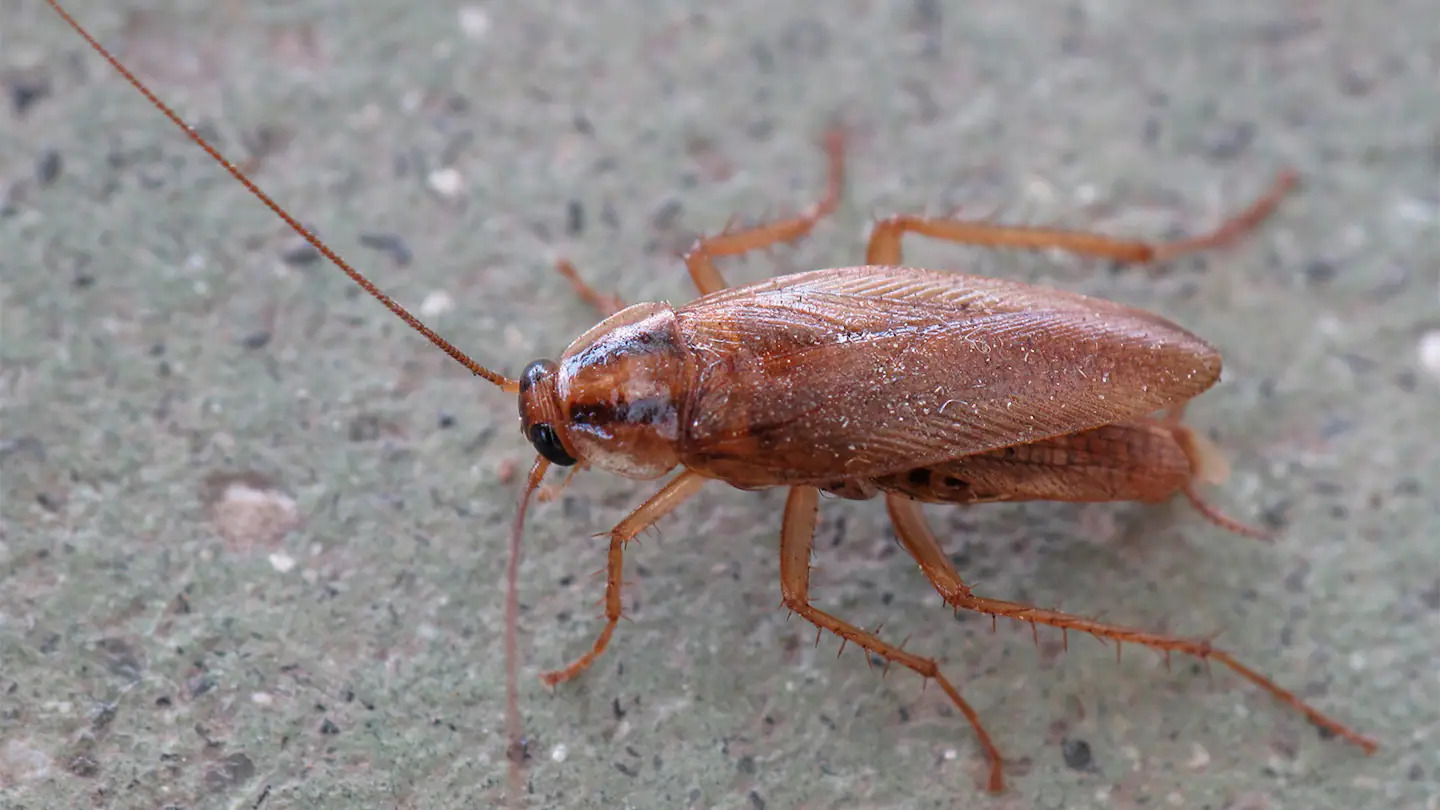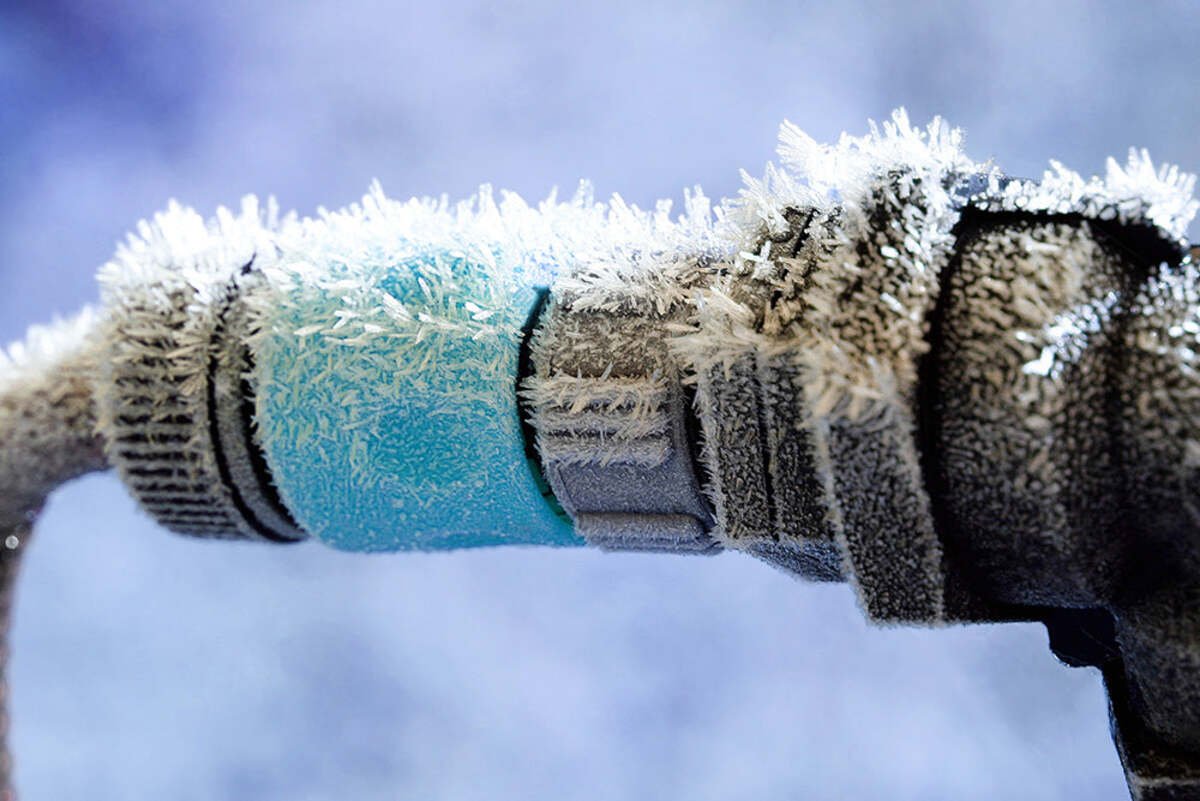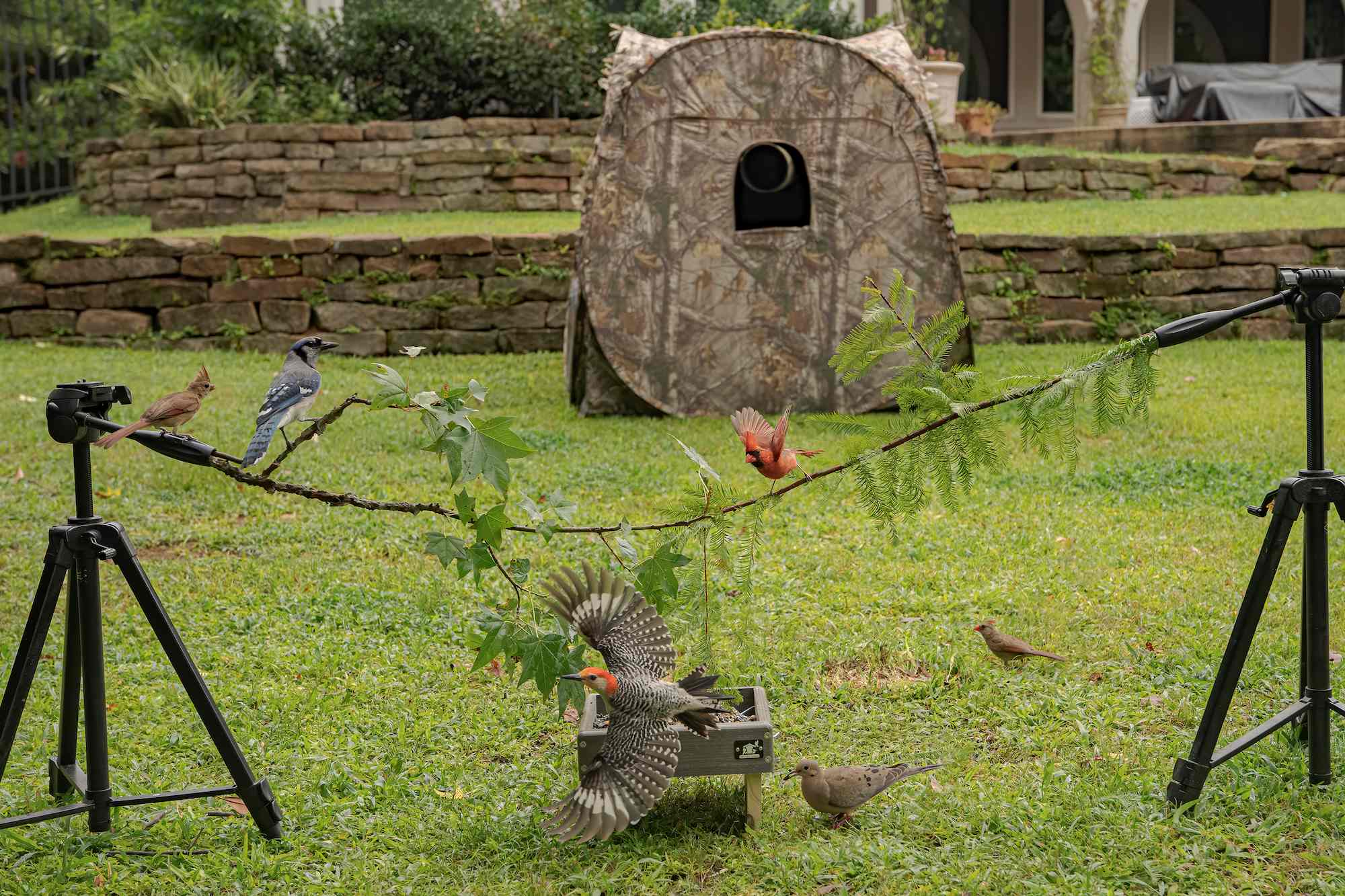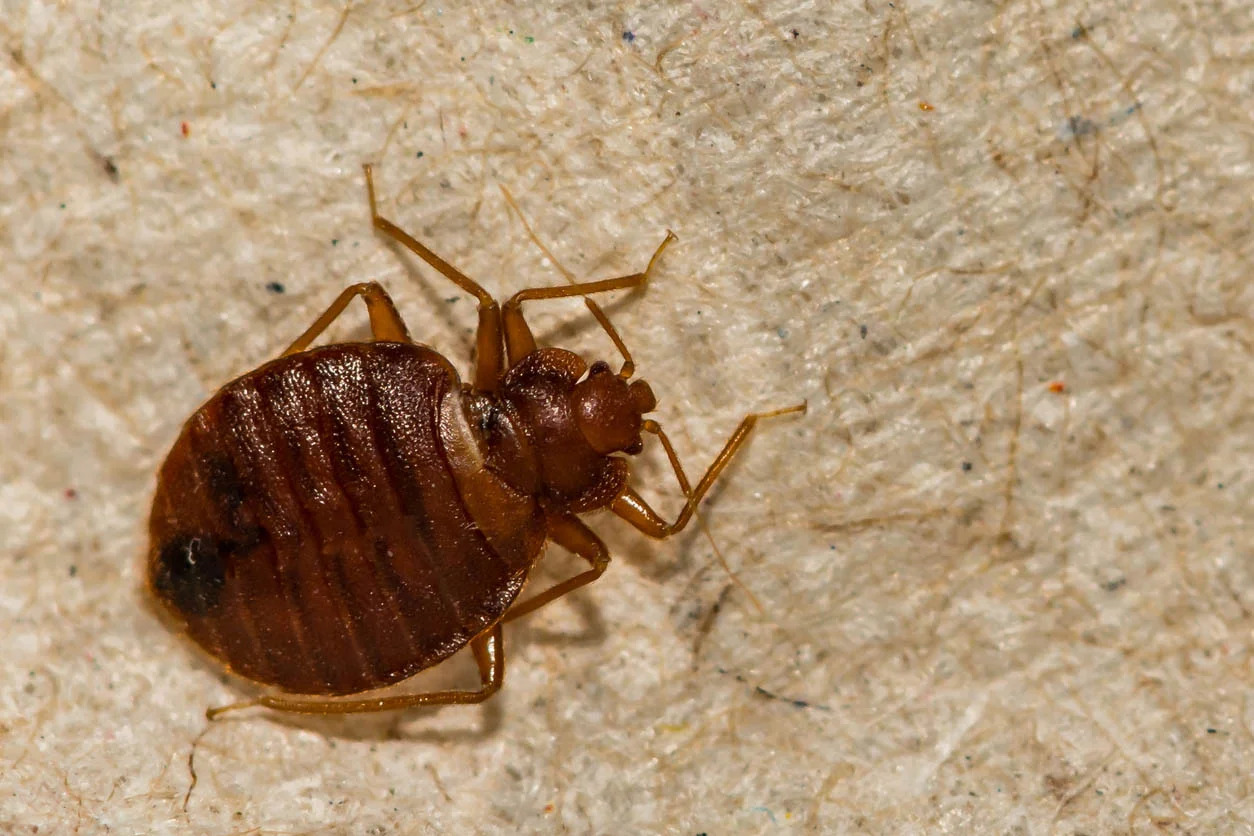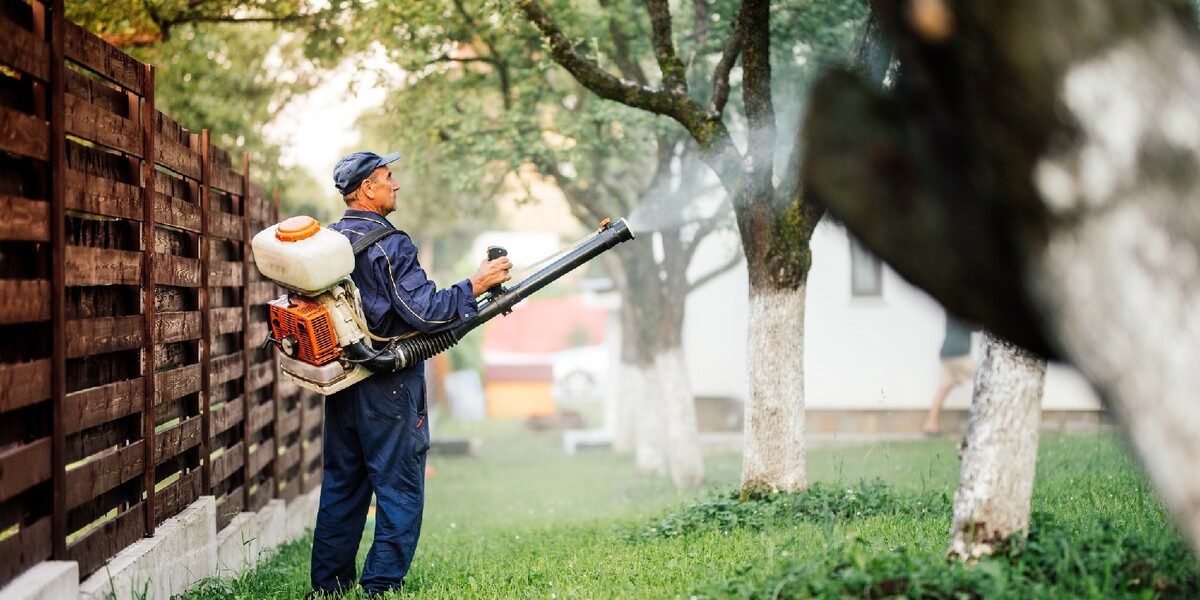Home>Gardening Tips and Tricks>Eco-Friendly Gardening>How To Keep Mosquitoes Away From Backyard
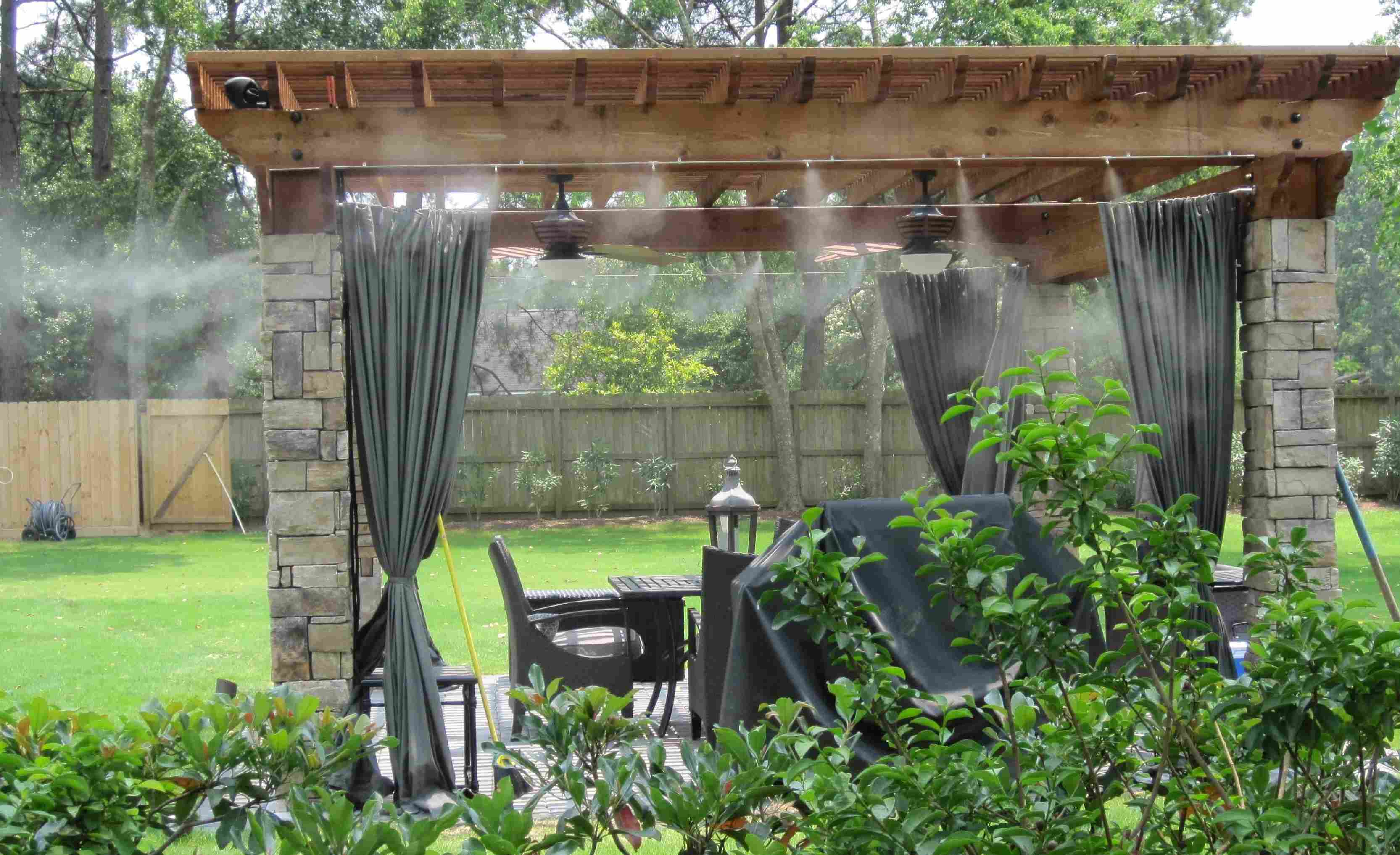

Eco-Friendly Gardening
How To Keep Mosquitoes Away From Backyard
Modified: January 22, 2024
Learn how to keep mosquitoes away from your backyard with eco-friendly gardening techniques. Create a mosquito-free outdoor space with natural remedies and sustainable practices.
(Many of the links in this article redirect to a specific reviewed product. Your purchase of these products through affiliate links helps to generate commission for Chicagolandgardening.com, at no extra cost. Learn more)
Table of Contents
Introduction
Welcome to our comprehensive guide on how to keep mosquitoes away from your backyard. With warmer temperatures and longer days, spending time outdoors becomes a popular activity. However, pesky mosquitoes can quickly ruin the enjoyment of your outdoor space. Not only are their bites itchy and irritating, but mosquitoes are also carriers of various diseases.
Fortunately, there are effective and eco-friendly methods to repel mosquitoes and create a mosquito-free environment in your backyard. In this article, we will explore the behavior of mosquitoes, natural ways to repel them, how to create a mosquito-free environment, and tips for maintaining a mosquito-proof backyard.
Understanding the behavior of mosquitoes is essential for successful mosquito control. Mosquitoes are attracted to the carbon dioxide we exhale, body heat, and certain chemicals in our sweat. They also breed and lay eggs in stagnant water sources, such as ponds, bird baths, or standing water in flower pots. By knowing their habits, we can implement strategies to deter mosquitoes and minimize their presence.
Natural ways to repel mosquitoes are not only safer for the environment but also for ourselves and our pets. Synthetic mosquito repellents often contain harmful chemicals that can have long-term health effects. Instead, we will explore natural options, such as essential oils, herbs, and plants, that effectively repel mosquitoes without posing risks to our health or the environment.
Creating a mosquito-free environment requires some proactive measures. By removing or minimizing mosquito habitats, such as standing water and overgrown vegetation, we can significantly reduce mosquito populations. Additionally, we will discuss the importance of proper landscape maintenance, including regular mowing and trimming, to discourage mosquitoes from breeding.
To maintain a mosquito-proof backyard, we will share practical tips on how to protect yourself and your loved ones. Using physical barriers, such as screens or mosquito netting, can help create a safer outdoor space. We will also explore safe and effective mosquito control products, such as insect-repelling candles or torches, that can further enhance your mosquito-free experience.
Lastly, we will address additional tips and considerations for dealing with mosquitoes. From alternative methods of mosquito control, such as utilizing natural predators, to personal hygiene practices that can reduce mosquito attraction, we will provide a holistic approach to safeguarding your backyard from these nuisance insects.
By implementing the strategies and tips outlined in this guide, you can enjoy a mosquito-free and eco-friendly backyard all summer long. Now, let’s dive into the fascinating world of mosquitoes and discover how to keep them at bay!
Understanding Mosquito Behavior
Before we delve into effective mosquito control measures, it’s important to understand the behavior of these tiny but persistent insects. Mosquitoes have specific preferences and habits that can help us develop targeted strategies to keep them away from our backyard.
Mosquitoes are attracted to the carbon dioxide we exhale when we breathe. They also have the ability to detect body heat, making humans and animals prime targets for their bites. Additionally, mosquitoes are drawn to certain chemicals present in our sweat, making some individuals more attractive to them than others.
Female mosquitoes require blood meals to nourish their eggs and ensure successful reproduction. It is important to note that only female mosquitoes bite because they need the proteins found in blood to develop and lay their eggs. Males, on the other hand, primarily feed on plant juices and nectar.
Mosquitoes are most active during dawn and dusk when the temperature and humidity are favorable for their survival. They tend to rest in cool, shaded areas during the day, such as shrubs, tall grasses, or under decks and porches. Understanding these habits can help us implement preventive measures during peak mosquito activity.
Mosquitoes breed in stagnant water sources, making it crucial to eliminate or minimize potential breeding grounds in our backyard. Common breeding sites include uncovered pools, ponds, birdbaths, or even small containers filled with standing water, such as flower pots or buckets. Regularly emptying, covering, or treating these water sources can significantly reduce mosquito populations.
It’s also worth noting that different species of mosquitoes have different preferences for breeding habitats. Some mosquitoes prefer natural environments like marshes or swamps, while others thrive in urban areas, utilizing man-made containers and structures for breeding. Understanding which mosquito species are prevalent in your area can help in targeting specific control methods.
By gaining insight into mosquito behavior, we can tailor our mosquito control strategies accordingly. This knowledge allows us to focus on reducing mosquito attractiveness, eliminating breeding sites, and creating an environment that is less hospitable for these bothersome insects.
Natural Ways to Repel Mosquitoes
Instead of relying on chemical-laden mosquito repellents, you can effectively repel mosquitoes using a variety of natural methods. These natural repellents are not only better for the environment but also safer for your health. Let’s explore some of the most effective ways to naturally keep mosquitoes at bay.
1. Essential Oils: Certain essential oils have mosquito-repelling properties. Citronella, eucalyptus, lemongrass, lavender, and peppermint are some of the most commonly used. You can create your own mosquito repellent spray by diluting a few drops of these essential oils with water and spraying it on your skin or clothing.
2. Herbs: Planting mosquito-repellent herbs in your backyard not only adds a beautiful touch but also helps keep mosquitoes away. Basil, rosemary, catnip, and lemon balm are excellent choices. Crush the leaves and rub them on your skin or place them in strategic locations to deter mosquitoes.
3. Mosquito-Repellent Plants: Along with herbs, certain plants naturally repel mosquitoes. Marigolds, geraniums, lavender, and citronella grass are some examples. Planting them around your seating areas or in pots can create a natural barrier against mosquitoes.
4. Garlic: Consuming garlic can make your body emit a scent that repels mosquitoes. Including garlic in your diet or taking garlic supplements may help reduce your attractiveness to these pesky insects.
5. Fans: Mosquitoes are weak flyers, and strong air currents can make it difficult for them to hover near you. Utilize fans in your outdoor space to create a breeze and keep mosquitoes at bay. This is a simple, cost-effective, and energy-efficient method.
6. Citronella Candles: Citronella candles are a popular choice for outdoor mosquito control. The scent of citronella masks the odors that attract mosquitoes, effectively repelling them. Place citronella candles around your seating area or patio to create a mosquito-free zone.
7. Mosquito-Repellent Clothing: Opt for clothing treated with mosquito repellents or wear long sleeves and pants in light colors. This provides an extra layer of protection and reduces exposed areas where mosquitoes can bite.
Remember, these natural methods may not provide 100% protection but can significantly reduce mosquito encounters. It’s important to reapply or refresh these repellents regularly, especially when spending an extended period outdoors.
By incorporating these natural repellent methods into your routine, you can enjoy your outdoor spaces without constantly swatting away mosquitoes. Say goodbye to chemical sprays and embrace these eco-friendly alternatives.
Creating a Mosquito-Free Environment
Creating a mosquito-free environment in your backyard involves both proactive and preventive measures. By minimizing mosquito habitats and making your space less attractive to these pesky insects, you can significantly reduce their presence. Let’s explore some key steps in creating a mosquito-free environment.
1. Remove Standing Water: Mosquitoes breed in stagnant water, so eliminating or minimizing potential breeding sites is crucial. Empty and clean birdbaths, pet water bowls, and saucers under pots regularly. Clear clogged gutters and fix any areas where water may accumulate.
2. Maintain Ponds and Water Features: If you have a pond or water feature, it’s important to keep it properly maintained. Introduce fish that feed on mosquito larvae, such as goldfish or guppies, to help control mosquito populations naturally.
3. Keep Your Yard Clean: Mosquitoes are attracted to overgrown vegetation and hiding spots. Keep your yard well-maintained by regularly mowing the lawn, pruning shrubs, and removing any debris or piles of leaves that can collect water or provide shelter for mosquitoes.
4. Trim Trees and Shrubs: Mosquitoes often rest in shaded areas like trees and shrubs during the day. Trim back branches and remove any dense vegetation near seating areas to reduce mosquito resting spots.
5. Install and Maintain Screens: To keep mosquitoes out of your home, make sure all doors and windows have properly fitted screens without any holes or tears. Repair or replace damaged screens to create a barrier between mosquitoes and indoor spaces.
6. Use Outdoor Fans: Mosquitoes are weak flyers, and placing outdoor fans strategically can create a breeze that keeps them away. Consider installing fans on your patio, deck, or seating areas to make it more uncomfortable for mosquitoes to approach.
7. Avoid Peak Mosquito Activity: Mosquitoes are most active during dawn and dusk. If possible, plan outdoor activities during other times of the day to minimize exposure to mosquitoes.
8. Plant Mosquito-Repellent Species: Incorporate mosquito-repellent plants and herbs in your landscaping. Placing them near seating areas or in pots can help deter mosquitoes and create a natural barrier.
By implementing these measures, you can create a less hospitable environment for mosquitoes, reducing their presence in your backyard. Remember to stay consistent with maintenance and upkeep to ensure long-term mosquito control.
Maintaining a Mosquito-Proof Backyard
Maintaining a mosquito-proof backyard involves ongoing efforts to prevent mosquitoes from breeding and to protect yourself and your loved ones from mosquito bites. By following these practical tips, you can enjoy your outdoor space without the annoyance and health risks associated with mosquitoes.
1. Empty and Refresh Water Sources: Regularly empty and refresh water sources such as pet bowls, birdbaths, and flowerpot saucers to prevent mosquitoes from laying their eggs. Stagnant water is a breeding ground for mosquitoes, so keeping these areas clean and dry is essential.
2. Cover Rain Barrels and Drains: Ensure that rain barrels and drains are covered with fine mesh to prevent mosquitoes from accessing them.
3. Utilize Mosquito Dunks or Larvicides: For water sources that cannot be emptied or refreshed, such as ponds or water features, consider using mosquito dunks or larvicides. These products contain bacteria that specifically target and kill mosquito larvae, disrupting their life cycle and reducing mosquito populations.
4. Install and Maintain Outdoor Lighting: Mosquitoes are attracted to bright lights, so consider using yellow or LED lights that are less attractive to these insects. Additionally, keep lights turned off when not in use to minimize mosquito activity.
5. Utilize Mosquito Nets or Screens: When spending time outdoors, particularly during peak mosquito activity, use mosquito nets or screens on windows, doors, and patio enclosures to create a physical barrier between yourself and mosquitoes.
6. Wear Appropriate Clothing: Wear long-sleeved shirts, long pants, and socks when spending time in mosquito-prone areas. Light-colored clothing is less attractive to mosquitoes, and tucking pants into socks can further minimize exposed skin.
7. Use Natural Repellents: Apply natural mosquito repellents, such as those containing essential oils, on exposed skin. Reapply as needed, especially if sweating or in areas with high mosquito activity.
8. Maintain Your Yard and Landscape: Regularly mow the lawn, trim shrubs, and remove any overgrown vegetation to reduce resting spots for mosquitoes. Consider using mosquito-repellent plants in your landscaping for additional protection.
9. Invite Natural Predators: Encourage natural predators of mosquitoes, such as birds and bats, to visit your backyard by providing birdhouses, bat boxes, or attracting insect-eating birds with native plants and bird feeders.
10. Stay Updated: Stay informed about mosquito control efforts in your area, including local spraying or treatment programs. It’s important to follow any guidelines or recommendations provided by your local authorities.
By consistently implementing these maintenance practices, you can significantly reduce mosquito populations and create a more enjoyable and mosquito-free backyard environment.
Additional Tips and Considerations
In addition to the strategies mentioned earlier, here are some additional tips and considerations to enhance your mosquito control efforts:
1. Limit Outdoor Activity: If you live in an area with a high mosquito population, consider limiting outdoor activities during peak mosquito times, which are typically dawn and dusk.
2. Use Mosquito-Repellent Devices: Consider using mosquito-repellent devices, such as mosquito coils, mosquito-repellent torches, or mosquito traps. These can provide localized protection and help reduce the number of mosquitoes in your immediate vicinity.
3. Encourage Air Circulation: Mosquitoes are weak fliers, so creating airflow in your outdoor space can help keep them at bay. Use fans or create natural windbreaks with plants and shrubs.
4. Avoid Perfumes and Strong Scents: Mosquitoes are attracted to perfumes and strong scents, so minimize the use of scented body products and avoid wearing floral or fruity fragrances when spending time outdoors.
5. Stay Hydrated: Stay properly hydrated as well-hydrated individuals are less attractive to mosquitoes.
6. Maintain Swimming Pools: Keep swimming pools properly chlorinated and maintained. Mosquitoes can breed in neglected or poorly maintained pools.
7. Consider Mosquito-Repellent Clothing: Look for clothing that is specifically treated with mosquito repellents, which can provide long-lasting protection against mosquito bites.
8. Travel Precautions: If you are traveling to regions known for mosquito-borne diseases, consult with your healthcare professional about recommended vaccinations and take appropriate precautions, such as using mosquito nets and using mosquito repellents.
9. Community Efforts: Be aware of community-wide efforts to control mosquitoes, such as neighborhood clean-up days or mosquito-control programs. Participate and encourage your friends and neighbors to take part as well.
Remember, while these tips can help reduce mosquito populations and minimize mosquito bites, it’s important to remain vigilant and adapt your approach as needed. Different regions and climates may require different strategies, so staying informed and being proactive is key in maintaining a mosquito-free environment.
Conclusion
Creating a mosquito-free and eco-friendly backyard is essential for enjoying the outdoors without the annoyance and health risks associated with these pesky insects. By understanding mosquito behavior, implementing natural repellents, creating a mosquito-free environment, and maintaining preventive measures, you can significantly reduce mosquito populations and bites.
Utilizing natural repellents such as essential oils, herbs, and mosquito-repellent plants not only keeps mosquitoes away but also avoids the use of harmful chemicals found in synthetic sprays. These eco-friendly alternatives are better for your health and the environment.
Creating a mosquito-free environment involves eliminating stagnant water sources, maintaining a well-kept yard, installing screens, and using fans to deter mosquitoes. By reducing mosquito breeding sites and making your outdoor space less attractive to mosquitoes, you can minimize their presence.
Maintaining a mosquito-proof backyard requires regular maintenance, proper landscape care, and the use of physical barriers such as mosquito nets or screens. Additionally, considering natural predators, wearing appropriate clothing, and using mosquito-repellent devices can further enhance mosquito control efforts.
It’s also important to stay informed about local mosquito control measures and take necessary precautions when traveling to areas known for mosquito-borne diseases.
By incorporating these tips and strategies, you can enjoy a mosquito-free backyard, allowing you and your loved ones to fully embrace outdoor activities and create lasting memories. So, go ahead and create a welcoming and mosquito-free environment that lets you fully enjoy the beauty of nature and the joy of being outdoors!

